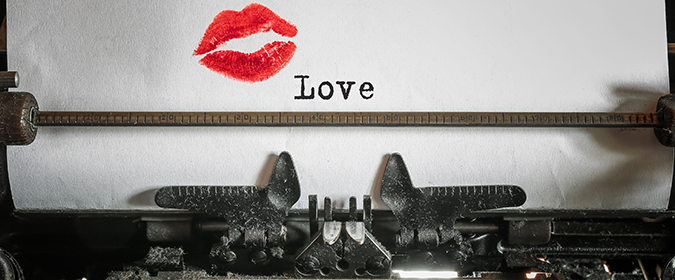
Love doesn’t always seem like a topic that’s terribly newsworthy, but some of the best feature stories are about love. Heck, a whole movie was made about the joy some people get from reading newspaper wedding announcements (27 Dresses, anyone?) And who can blame them. While a simple love story may not make it onto your daily reading list, there are many great love stories out there that are part of our news media landscape. So, for Valentine’s Day, we rounded up some fact-based love stories to remind us all that love isn’t just for fairy tales.
You May Want to Marry My Husband by Amy Krouse Rosenthal (The New York Times)
“If he sounds like a prince and our relationship seems like a fairy tale, it’s not too far off, except for all of the regular stuff that comes from two and a half decades of playing house together. And the part about me getting cancer. Blech,” Krouse Rosenthal wrote in 2017. She died 10 days after this essay was published. A year later, her husband penned a response.
The Lovers: Afghanistan’s Romeo and Juliet: The True Story of How They Defied Their Families and Escaped an Honor Killing by Rod Nordland
Rod Nordland’s book, published by Ecco in 2015, is based on a series of articles he wrote about Ali and Zakia, the young “Romeo and Juliet” he followed in Afghanistan. “They have never been alone in a room together, but they have publicly declared their love for each other and their intention to marry despite their different ethnicities and sects. That was enough to make them outcasts, they said, marked for death for dishonoring their families — especially hers,” Nordland wrote of the couple in his first article about them for The New York Times in 2014. His colleague Mujib Mashal followed up with the couple in 2016, following Nordland’s book release.
Love Is Not a Permanent State of Enthusiasm: An Interview with Esther Perel by Alexandra Schwartz (The New Yorker)
“In a style marked by humor, frankness, and empathy, Perel’s talks and books take a counterintuitive approach to answering provocative questions: How did the romantic couple become the primary unit of organization in society? Can romantic desire truly be sustained? Is infidelity ever a good thing?”
“If he sounds like a prince and our relationship seems like a fairy tale, it’s not too far off, except for all of the regular stuff that comes from two and a half decades of playing house together. And the part about me getting cancer. Blech,” Krouse Rosenthal wrote in 2017. She died 10 days after this essay was published. A year later, her husband penned a response.
To Fall in Love with Anyone, Do This by Mandy Len Catron (The New York Times)
“More than 20 years ago, the psychologist Arthur Aron succeeded in making two strangers fall in love in his laboratory. Last summer, I applied his technique in my own life, which is how I found myself standing on a bridge at midnight, staring into a man’s eyes for exactly four minutes.”
What does ‘I love you’ mean? It depends on where you say it and what language you speak by Alice Robb (The Washington Post)
“In English, ’I love you’ can have the power of a magic spell or an atomic bomb: The words can help solidify a bond or threaten to destroy it if they’re spoken too soon. In the contemporary United States, courtship is increasingly casual, which makes heartfelt confessions of love more serious than ever before.”
I Lost My Love in Baghdad by Michael Hastings
Upon the release of Michael Hastings’s book in 2008, Lauren Iannotti of Marie Claire wrote, “While most couples spend their 20s bickering over whose turn it is to call for takeout, Newsweek reporter Michael Hastings and his girlfriend, nonprofit worker Andrea Parhamovich, were in Iraq, squeezing dinners in between his embeds and her briefings with local pols. Then, in January 2007, Parhamovich was killed when her convoy was ambushed in an unsecure area of Baghdad. In Hastings’s memoir, I Lost My Love in Baghdad, he describes two normal people trying for a happy life in a nightmare world.”
My Lovely Wife in the Psych Ward by Mark Lukach (Pacific Standard)
“Giulia was not going home today or tomorrow. Looking through the glass window into Giulia’s new, horrifying home, I asked myself, What the hell have I done? The place was full of potentially dangerous people who would rip apart my beautiful wife. Besides, she wasn’t really crazy. She just hadn’t slept. She was stressed. Probably anxious about work. Nervous about the prospect of becoming a parent. Not mentally ill.”
